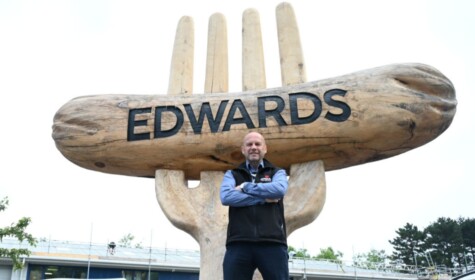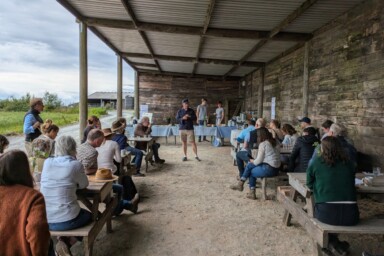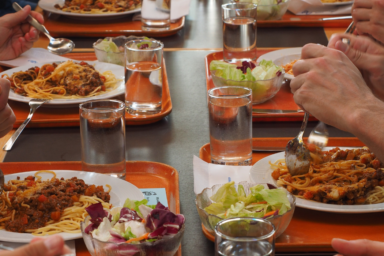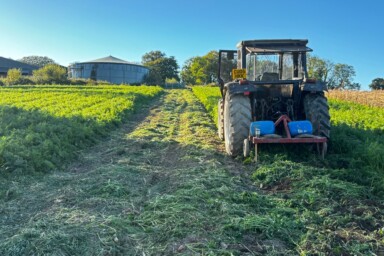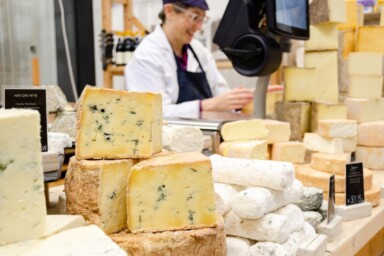When he announced his big news at the dinner table, he says, “My parents were very concerned about how I would finance this deal.” Under the condition that he would never ask his parents for money again, his father finally agreed to give Edwards the monetary equivalent of ten dairy cows. The next day, the bank manager told him that, given his young age and lack of experience, Edwards would need at least another £2,000 to qualify for a loan. “That afternoon I sold my car and some other items for £2,250, went back to the bank and got the money I needed.”
With a cracked marble slab and an old Belfast sink in the back, the shop wasn’t exactly in great shape. “But it was a start, and people in Conwy saw that a young man was making a go of it.” Edwards says he was lucky to be a first generation butcher, no one told him ‘this is how we have always done it’, and he was free to develop his own ideas. He joined the Q Guild of Butchers to meet like-minded people and attended butcher training courses in Holland and Switzerland. “To see how immaculate their shops were, was a revelation; there certainly was no sawdust on the floor. I learnt how important good hygiene is – it’s a ‘silent sales person’. Perception matters enormously,” says Edwards.
He took out another loan, refurbished the shop and saw sales go up by 25% as a result. In 1993, the Barclay’s bank building on the other side of the high street came up for sale, and once again Edwards closed the deal the same afternoon. He borrowed more money, had the building stripped to the core and refitted with state of the art equipment, including a hot counter. In a tourist town like Conwy, selling a selection of hot foods to go, made a lot of sense. “Meat is a commodity,” says Edwards. “As a butcher, I needed to figure out in how many ways I can sell it: boned out, marinated, cooked, in a roll, as a burger, in a pie.” The shop now, not only employs butchers, but a chef and a baker too.
